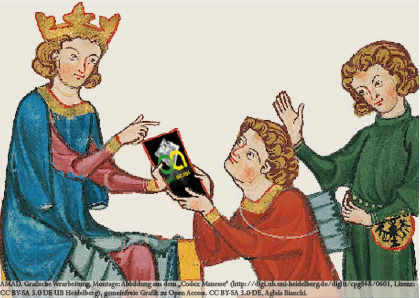AMAD
"Archivum Medii Aevi Digitale - Specialized open access repository for research in the middle ages"To submission

| Title: | From Medieval Mnemonics to a Social Construction of Memory Thoughts on Some Early European Conceptualizations of Memory, Morality, and Consciousness |
| Contributor: | The Pennsylvania State University CiteSeerX Archives |
| Author: | Christopher Chen Noel Packard |
| Description: | How did human memory activity, conceived of as an activity that helped bring a person closer to God, become affiliated with early sociological conceptualizations of a social con-struction of reality? This article explores one way of answering this question by considering some social conceptions of human memory from medieval times to modernity. In the Middle Ages, a good memory was an important characteristic of the most esteemed scholars. Rheto-ric was enhanced through mnemotechniques. Memory as practiced activity complemented early theological concepts of self-consciousness, or “being ” closer to God, and morality and complemented early interpretations of contract law, casuistry, and jurisprudence. These concepts changed when religious belief, educational, and legal systems changed to meet the needs of a modern, capitalistic, and secular society. Capitalism facilitated the development of memory in commodity form, and human memory was claimed from metaphysical dis-course as an object of scientific study by sociologists Emile Durkheim and Maurice Halbwachs. |
| URI: | https://www.amad.org/jspui/handle/123456789/66375 |
| Other Identifier: | http://citeseerx.ist.psu.edu/viewdoc/summary?doi=10.1.1.505.5557 http://www.sagepub.com/holt/articles/Packard.pdf |
| AMAD ID: | 568257 |
| Appears in Collections: | BASE (Bielefeld Academic Search Engine) General history of Europe |

